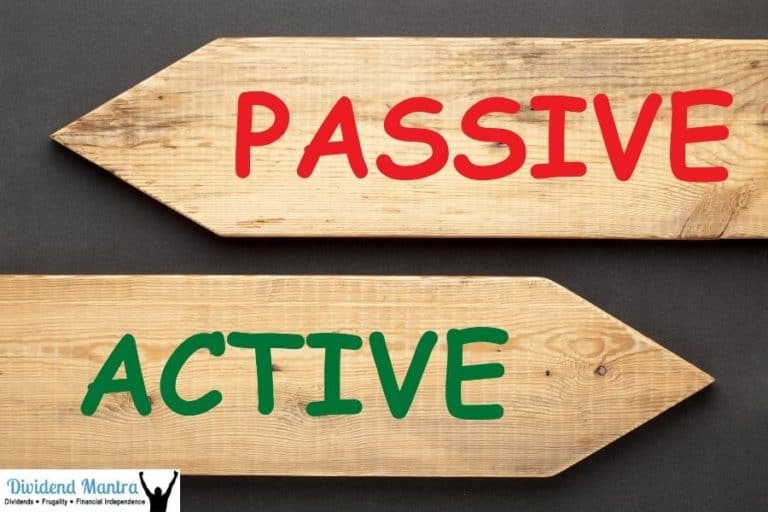The 10 Best Investment Books to Help You Buy Low and Sell High
If you’re wondering where to invest your money, there are many resources out there to help you, and webpages, blogs, and books all vie for your attention. But how will you know if those sources know what they’re talking about? We’ve put together a list of the top ten of the best investment books that will help you determine where to invest your money. Whether you’re an experienced investor or a beginner just starting out on your investment journey, there’s an investment book here for you.
Why Invest?
The short answer is to make money. The average millionaire invests 20 percent of their income. The earlier you start investing, the better off you will be. Investing in a diverse portfolio will allow you to reap stronger rates of return than merely saving your money or tossing it under your mattress. Investing is a way to get your money to work for you. Smart investing generates cash; and who doesn’t want more cash?
Recommended Read: 10 Creative Tips on How to Save Money for a House of Your Dreams
How We Selected the Best Investment Books
We read many books on investing and followed the recommendations of financial wizards to come up with this list of the best investment books. Some of them are geared toward the beginner, some of them are for a more experienced investor, but all of them are worth a read.

What We Reviewed
- The Essays of Warren Buffett: Lessons for Corporate America
- The Intelligent Investor: The Definitive Book on Value Investing
- A Random Walk Down Wall Street: The Time-Tested Strategy for Successful Investing
- The Little Book of Common Sense Investing: The Only Way to Guarantee Your Fair Share of Stock Market Returns
- The Investment Answer
- How to Make Money in Stocks: A Winning System in Good Times and Bad
- Thinking, Fast and Slow
- Security Analysis: Sixth Edition, Foreword
- The Most Important Thing Illuminated: Uncommon Sense for the Thoughtful Investor
- Reminiscences of a Stock Operator
The Essays of Warren Buffett: Lessons for Corporate America
By Lawrence A. Cunningham
This book is in its fourth edition and remains wildly popular for good reason. There aren’t many investors more successful than Warren Buffett, so you might as well learn from the very best. He refers to “corporate America,” but what he really means by that is shareholders.
Buffet does a great job of explaining the relationship between corporations and their shareholders (people who own stock in the company) in an easy-to-understand way.
The book spans fifty years of Warren Buffett’s knowledge and insight and reads as if you’re just having a cup of coffee with someone who happens to be the most brilliant investor alive today.
Where to Buy
The Intelligent Investor: The Definitive Book on Value Investing
By Benjamin Graham, Jason Zweig, and Warren Buffett (collaborator)
This was originally published in 1949 and has been referred to as the stock market bible. Benjamin Graham’s way of a developing long-term strategy for investing while avoiding risky choices has stood the test of time.
It has been updated by Jason Zweig, who is a well-known financial journalist. Warren Buffet read this book when he was nineteen and says it was one of the luckiest moments of his life.
Unlike a lot of financial advice books, this book does not claim that anyone can get a handle on investing and earn remarkable returns. Rather, it takes pains to emphasize how not to lose a ton of money.
The authors go over the basics to get you started in investing and keep you going for a long time. It offers sound financial advice such as how to diversify a portfolio and why you should never buy IPO’s.
While many people swear by it, others say the information presented is over their heads. This is a challenging read for beginners, but worthwhile if you have some knowledge of investing already. One caveat: It’s not easy to read on an e-reader, as it has tables, which are very difficult to read on an electronic medium.
Where to Buy
A Random Walk Down Wall Street: The Time-Tested Strategy for Successful Investing
By Burton G. Malkiel
This is the best investment book for beginners. It defines many investment terms that the beginner may not be familiar with, such as indexing, bubbles, derivatives, and futures.
It applies these investment terms to long-term strategies you can apply depending on where you are in life and what your financial goals are. It will teach you how the stock market works and how to build a retirement nest egg.
The book has sold over 1.5 million copies. It’s called a Random Walk down Wall Street because the author hypothesizes that much of the stock market is random and that no forces are in play, or at least not forces that you can reliably predict. If that doesn’t intimidate you, this is a great investing book for beginners.
Where to Buy
The Little Book of Common Sense Investing: The Only Way to Guarantee Your Fair Share of Stock Market Returns
By John C. Bogle
This is the best investment book on index funds as a strategy. John C. Bogle is the founder of Vanguard Group, which hold over three trillion dollars in assets. He knows a good bit about investing. He and Warren Buffet are supposedly best friends.
Bogle’s investment strategy is simple: keep costs low and invest in market indexes, which isn’t surprising given that he created the first-ever index fund way back in 1975.
This is another book that is more realistic rather than relentlessly optimistic and cautions that many investors find it very difficult to nail down a winning investment strategy. Then he offers how he developed his strategy and what worked for him.
A few of his strategies include how to ignore market hype and focus on what works in the real world and how to build a broadly diversified low-cost portfolio.
Where to Buy
The Investment Answer
By Daniel C. Goldie and Gordon S. Murray
This is one of the best investment books for the beginning investor. If you’re tired and frustrated with books that assume you know what all the investment terms mean, you will be happy that this book defines these terms in plain English.
The book also breaks down the five decisions every investor must make, such as whether to invest alone or with a professional, how to allocate your money among stocks, bonds, and cash and which of these specifically to invest in, when to sell and when to buy, and how active an approach you should take in the management of your portfolio.
Whether you are a complete beginner or you have a lot of investing experience, there’s a lot of solid information here.
Where to Buy
How to Make Money in Stocks: A Winning System in Good Times and Bad
By William J. O’Neil
This classic book is now in its fourth edition. It is one of the best investment books specifically on growth investing (as opposed to Buffet, which is value investing).
Through any market, O’Neil breaks down his system for minimizing risk and maximizing gains. The author has studied market trends and offers over one hundred charts so you can spot the most profitable trends in today’s market.
If the thought of reading through one hundred graphs and interpreting them so you can invest wisely excites you, this is your book. It’s also heavy on technical analysis.
Where to Buy
Thinking, Fast and Slow
By Daniel Kahneman
If you’re fascinated by how people’s subconscious motivations affect their financial decisions, you will enjoy this book. This is the best investment book if you’re looking for how psychology affects your finances.
The author is a psychology professor at Princeton and won the Nobel Prize for Economic Sciences in 2002, so he is the perfect person to write such a book.
The main thrust of the book is that we have two systems that influence how we think: the first system is emotional and intuitive (the “fast” thinking of the title) and the second system is more methodical and logical (the “slow”). Our survival depended on fast reactions to novel situations, but logical, slower thinking frequently leads us to a better conclusion.
There are a lot of studies and examples, and the book is very entertaining. It does not offer concrete investing advice.
It may help you in your overall investing strategy as you will gain a better understanding of cognitive biases you have and what your motivations are.
Where to Buy
Security Analysis: Sixth Edition, Foreword
By Benjamin Graham and David L. Dodd
Another book by Benjamin Graham; if you can’t get enough of all things investing, this is the best investment book for you. This is more of a textbook, so be prepared for a lot of detailed analysis in its over 700 pages.
If you get through it all, you will be able to evaluate a company and determine whether it’s a good investment. You will be equipped with the philosophical and analytical tools you need to make those decisions. You will learn the difference between speculation and investment. It’s not an easy read, but it is thorough.
The sixth edition comes with a CD-Rom which supplied about twenty percent of the chapters. If you no longer have the means to read CD-roms, you should probably just buy the second edition.
Where to Buy
The Most Important Thing Illuminated: Uncommon Sense for the Thoughtful Investor
By Howard Marks
This book lists the twenty-one most important things to know as an investor. The author urges investors to put more thought into where they invest and provides examples of poor investment decisions he made and what you can learn from his mistakes.
Marks defines such terms as “second-level thinking” and discusses the price/value relationship and defensive investing. It’s partially a memoir and partially a guidebook.
Where to Buy
Reminiscences of a Stock Operator
By Edwin Lefevre and Jon D. Markman
This book is a fictionalized biography of Jesse Livermore who won and lost tens of millions of dollars by speculating in the stock market. It was written in 1923 but remains a classic. It’s filled with anecdotes and examples of Livermore’s mastery of the stock market from the age of 14.
Lest you think that there’s nothing of practical value for today’s market in here, it studies his strategies and explains how you can use them in today’s market.
The most recent edition details the actual historical events, people, and places in the book. It analyzes the decisions that Livermore made and why they worked or why they didn’t.
It’s an entertaining read, and the new edition has over a hundred pages of new material.
Where to Buy
Recommended Read: Top 10 High Dividend Stocks to Invest in Now
The Verdict
Where you are in your investing career will determine which of these best investment books you will find the most helpful.
Are you a complete beginner who needs someone to define basic investment terms before they start going into strategy? Try A Random Walk Down Wall Street by Burton Malkiel.
If you are set on value investing, try The Essays of Warren Buffett or The Intelligent Investor by Benjamin Graham. If you have a background in psychology, or if you really want to discover your subconscious motivations as they pertain to money, Thinking, Fast and Slow by Daniel Kahneman will appeal to you.
You really can’t go wrong with any of these recommendations, which is why we carefully selected them as the best investment books today.
Featured Image by Pixabay from Pexels







